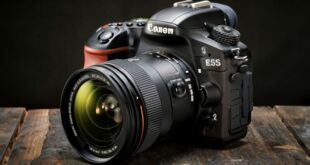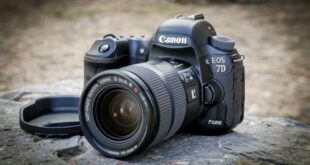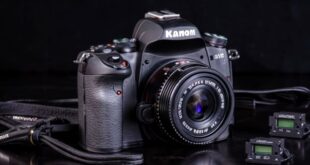Introduction
Hey everyone, today we are going to discuss the key differences between DSLR cameras and video cameras. In this digital age, photography and videography have become an integral part of our lives. Whether it’s capturing memories or creating professional content, having the right equipment is crucial. While both DSLR cameras and video cameras serve the purpose of capturing visuals, they have distinct features and functionalities. So, let’s dive into the details and understand the differences between DSLR and video cameras.
1. Sensor Size 📷📹
One of the significant differences between a DSLR camera and a video camera is the sensor size. DSLR cameras generally have larger sensors compared to video cameras. This larger sensor size allows DSLRs to capture more detail and produce higher quality images and videos. Video cameras, on the other hand, have smaller sensors that are optimized for video recording rather than photography.
2. Interchangeable Lens Capability 🔄
DSLR cameras are known for their interchangeable lens capability, which allows users to swap lenses based on their specific needs. This flexibility enables photographers and videographers to experiment with different focal lengths, apertures, and perspectives. Video cameras, however, typically have built-in lenses that cannot be changed. While this limits the versatility of video cameras, it also ensures convenience and simplicity for capturing videos.
3. Autofocus Speed ⚡️
When it comes to autofocus speed, DSLR cameras have the upper hand. The advanced autofocus system in DSLRs allows for quick and accurate focusing, making them ideal for capturing fast-moving subjects or situations where speed is crucial. Video cameras, while they do have autofocus capabilities, are generally not as fast and responsive as DSLRs. This may result in slightly slower focusing when recording videos.
4. Video Recording Features 🎥
Video cameras are specifically designed for video recording and come with a wide range of features tailored to videography. They often include built-in microphones, headphone jacks, and advanced video recording options such as manual controls, frame rate adjustments, and image stabilization. DSLR cameras have also evolved to include video recording capabilities, but they may not offer the same level of video-centric features as dedicated video cameras.
5. Size and Portability 📏
DSLR cameras are generally larger and bulkier compared to video cameras. With their interchangeable lenses and robust body constructions, DSLRs are designed for professional photographers who prioritize image quality and control. Video cameras, on the other hand, are more compact and lightweight, making them easier to carry and handle for prolonged video recording sessions.
6. Battery Life 🔋
When it comes to battery life, video cameras tend to outperform DSLRs. Since DSLRs are more power-hungry due to their larger sensors and advanced features, their battery life is often shorter. Video cameras, designed specifically for continuous video recording, are optimized to provide longer battery life for extended shooting sessions.
7. Price 💰
Price is a crucial factor to consider when choosing between a DSLR camera and a video camera. Generally, DSLR cameras are more expensive than video cameras, primarily due to their advanced photography capabilities and larger sensors. Video cameras, on the other hand, are more affordable and suitable for individuals who primarily focus on videography. However, it’s important to note that high-end video cameras can still be quite expensive.
Difference Between DSLR and Video Camera – Complete Comparison Table
| Features | DSLR Camera | Video Camera |
|---|---|---|
| Sensor Size | Larger | Smaller |
| Interchangeable Lens Capability | Yes | No |
| Autofocus Speed | Fast | Slower |
| Video Recording Features | Advanced but limited | Extensive |
| Size and Portability | Larger and less portable | Smaller and more portable |
| Battery Life | Shorter | Longer |
| Price | Higher | Lower |
Frequently Asked Questions (FAQs)
1. Can I use a DSLR camera for videography?
Absolutely! DSLR cameras can capture high-quality videos and are widely used by professional videographers.
2. Which is better for photography, a DSLR or a video camera?
A DSLR camera is generally considered better for photography due to its larger sensor and interchangeable lens capability.
3. Can I change lenses on a video camera?
No, video cameras usually have fixed lenses that cannot be changed.
4. Are DSLRs more expensive than video cameras?
Yes, DSLR cameras are generally more expensive due to their advanced features and larger sensors.
5. Do video cameras have autofocus capabilities?
Yes, video cameras do have autofocus capabilities, but they may not be as fast as DSLRs.
6. Are video cameras more portable than DSLRs?
Yes, video cameras are generally smaller and more portable compared to DSLRs.
7. Can I record videos with a DSLR camera?
Yes, most DSLR cameras nowadays offer video recording capabilities.
8. Which is suitable for vlogging, a DSLR or a video camera?
Both can be suitable for vlogging, depending on your specific requirements. DSLRs offer more flexibility with interchangeable lenses, while video cameras provide convenient built-in features.
9. Do video cameras have image stabilization?
Yes, video cameras often have built-in image stabilization features to minimize camera shake while recording videos.
10. Can I use a DSLR camera for professional filmmaking?
Yes, DSLR cameras have gained popularity in professional filmmaking due to their ability to capture high-quality videos with different lenses.
11. Are DSLR cameras suitable for beginners?
Yes, DSLR cameras can be suitable for beginners who are interested in learning photography and videography.
12. Can I capture still photos with a video camera?
Yes, video cameras often have the capability to capture still photos, but the quality may not be as high as DSLR cameras.
13. Are video cameras better for recording events and live performances?
Yes, video cameras are often preferred for recording events and live performances due to their extensive video-focused features and longer battery life.
Conclusion
In conclusion, understanding the differences between DSLR cameras and video cameras is essential in choosing the right equipment for your photography or videography needs. While DSLRs offer superior image quality, lens versatility, and fast autofocus, video cameras excel in video-centric features, size, portability, battery life, and affordability. Consider your specific requirements, budget, and priorities to make an informed decision. Whether you choose a DSLR camera or a video camera, remember that practice and creativity are key to capturing stunning visuals.
Closing Statement
Thank you for taking the time to read this article on the difference between DSLR cameras and video cameras. It’s important to note that the choice between DSLR and video camera ultimately depends on your specific needs and preferences. Both options have their strengths and weaknesses, so it’s crucial to evaluate your priorities and budget before making a purchase. Whether you’re a professional photographer or a beginner videographer, investing in the right equipment can take your visual storytelling to new heights. Happy capturing!


